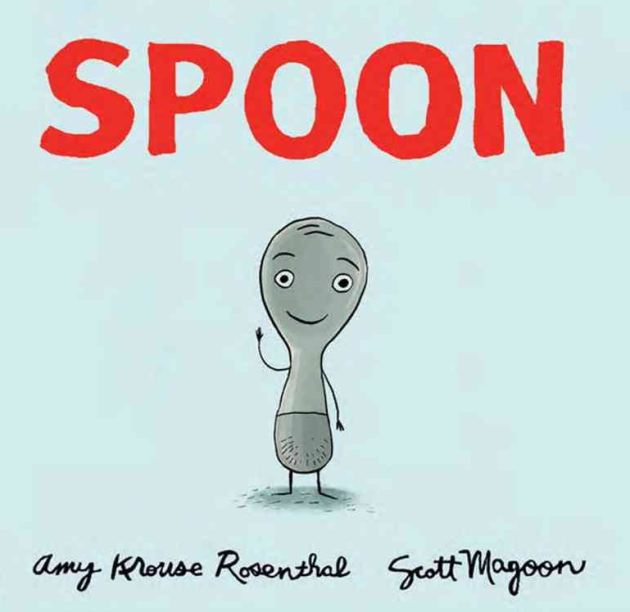Author Archives: Ilana Kurshan
February 23, 2021 by Ilana Kurshan
Esther in a New World
As part of his only recorded direct speech in the book of Esther, Mordechai exhorts his orphaned cousin Esther to appeal to King Ahaseurus, suggesting that Queen Esther’s raison d’etre was to rise to the occasion and deliver the Jewish people from danger. And yet, as a new anthology of essays suggests, Queen Esther has served many purposes over time — her inspiration and her legacy have been invoked and appropriated in contexts from colonial politics to the coronavirus vaccine clinical trials.
In Esther in America, edited by Rabbi Dr. Stuart W. Halpern (Maggid, $29.95), an array of scholars, rabbis and educators consider the various roles that Esther — and the scroll in which she appears — have played throughout American political and cultural history, making the case that this ancient Persian story of Jewish triumph over evil resonates with many aspects of the American experience.
The popular and prolific Puritan minister Cotton Mather frequently cited Queen Esther as a model of independent action and fidelity to her husband in his Ornaments for the Daughters of Zion, a conduct and virtue manual. American abolitionist women, including Angelina Grimke, Harriet Beecher Stowe and Sojourner Truth, identified the plight of the Jews in Persia with the suffering of the American slaves, casting Esther first in the role of the Black slave woman, valued for her sexual capital, and then in the role of the Southern Christian white woman, charged to speak out against injustice. In both contexts, Esther emerges at once obedient and independent, abused and empowered.
(more…)- No Comments
March 30, 2017 by Ilana Kurshan
You May Want to Feed My Children
 Yesterday my twins bit each other when an argument between them escalated rather quickly into a violent row. We were sitting at the kitchen table eating breakfast, and I was just about to read aloud to them from Amy Krouse Rosenthal’s Spoon, a longstanding dinnertime favorite in our family. My husband and I had selected this book together during our “date night” out during our vacation in the U.S. last summer, when his mother watched our kids so that we could have an evening to ourselves outside of the home. We got in the car and drove straight to Barnes and Noble, where we spent our kid-free evening—um—picking out books for our kids. Spoon caught our attention immediately because of its fetching illustrations of anthropomorphized cutlery—the spoon on the cover has wide eager eyes and a friendly arm raised in greeting.
Yesterday my twins bit each other when an argument between them escalated rather quickly into a violent row. We were sitting at the kitchen table eating breakfast, and I was just about to read aloud to them from Amy Krouse Rosenthal’s Spoon, a longstanding dinnertime favorite in our family. My husband and I had selected this book together during our “date night” out during our vacation in the U.S. last summer, when his mother watched our kids so that we could have an evening to ourselves outside of the home. We got in the car and drove straight to Barnes and Noble, where we spent our kid-free evening—um—picking out books for our kids. Spoon caught our attention immediately because of its fetching illustrations of anthropomorphized cutlery—the spoon on the cover has wide eager eyes and a friendly arm raised in greeting.
Only when we began reading did we realize that we were in the hands of a witty, word-loving wonder of a writer—which is to say that her Spoon was in our hands. The eponymous Spoon, we learn, is jealous of the knives and forks, who get to cut and spread and who never go stir-crazy. But then Spoon’s mother reminds him that only he gets to dive head-first into a bowl of ice cream and relax in a hot cup of tea, and Spoon begins to appreciate what only he can enjoy.
The book, on one level, is a simple tale about being content with one’s lot. As indeed, it seems, Amy Krouse Rosenthal was as well. Two weeks ago she had broken my heart and the hearts of thousands of other New York Times readers with her Modern Love column entitled “You May Want to Marry My Husband,” about her love of life and the love of her life, her husband of 26 years whom she would soon be parting with because she was tragically dying of terminal cancer.
- 1 Comment
June 17, 2015 by Ilana Kurshan
Truly How Majestic: In Memory of Bonna Devora Haberman
When I think of Bonna Devora Haberman z”l, I picture her leaping into the air on Yom Kippur afternoon, her face pale but beaming as she gathers everyone within arm’s reach into a circle for a triumphant chanting of Mareh Kohen, the liturgical poem about “truly how majestic” was the look on the high priest’s face when he successfully exited the Holy of Holies. Bonna was very proud of her Kohanic lineage, and even though she sometimes came late to shul, she never missed Birkat Kohanim – when she and her husband and children would get up to bless the congregation from beneath their tallitot, breathing new harmonies into the ancient biblical text.
When I wasn’t davening with Bonna – we participated in the same minyanim both at Harvard Hillel and in Jerusalem – I would often see her jogging in the early mornings with her husband Shmuel and their dog Sumsum. Bonna rarely stood still. A self-avowed “textual activist,” she was also always active, always on the go, never content to let anything be. At the funeral her husband Shmuel—always the quiet one in their relationship, Matthew Cuthbert to her Marilla—told the story of how he first met her in college in Ottawa at an Israeli dance class, where Bonna, too, was spinning circles around him. At one point he sat her down and asked her to tell him her dreams. “I dream of a large barn and a community of women, dancing, reading books, busy with organic farming, discussing ideas, and caring for children.” A community of women was not exactly what Shmuel had in mind, but Bonna had given him his opening. “Where will all the children come from?” he asked, feigning innocence. “Well, a few men will be allowed once in a while,” Bonna conceded. Then she asked Shmuel his fantasy, and he said he wanted to retire with her to a desert island. Bonna was quickly dismissive. “We can’t,” she said. “There’s too much in this world that needs fixing.”
Bonna insisted that Dayenu must end with Tikun Olam, because only when the world was healed would it truly be enough. For her, that was what building the Temple—the actual last line of Dayenu—was about. It was what drove her to help found Women of the Wall, a monthly Rosh Hodesh group where women donned the garments of ritual prayer and read from the Torah at the Kotel. And it was what inspired her brilliant writing about the Beit HaMikdash, including her profoundly bold and radical essay “The Yom Kippur Avodah in the Female Enclosure,” which I reread every year on Yom Kippur and which has inspired so much of my own writing and thinking about eroticism and the Talmudic sages. For a while Bonna became, for me, the embodiment of that essay, as if that one piece comprised the entirety of her identity; each time I’d run into her I’d buttonhole her with further questions and new ideas inspired by her words.
But Bonna was so much more. When she wasn’t writing she was fighting sex trafficking around the globe, pushing for gender equality at the Kotel and in Jerusalem, informally counselling young women about natural childbirth, caring for Mother Earth, and staging theater performances with Israeli and Palestinian women to solve the conflict in the Middle East. One of her sons said that she understood her name to be Bonna DvarYa – that is, a builder of the words of God. Just as the midrash in Breishit Rabba relates that God used the blueprint of Torah to create the world, Bonna looked to Torah for inspiration to repair the world. Another one of her sons said that Bonna, particularly in her last few months of illness, never wanted to sleep. “I’ll have enough time to sleep in the grave,” she insisted. But her son was not so sure. He assured us at the funeral that he has no doubt his mother has already staged a revolution in heaven.
And he is probably right. I can just imagine Bonna taking the angels by a storm, gathering them in a circle for a frenzied recitation of Mareh Kohen in which it is the angels who are analogized to the priests rather than vice versa. I will miss her presence in shul, especially during Birkat Kohanim – but regardless of what she is up to in heaven, I have no doubt she will still be shining her blessing upon us.
- No Comments
August 30, 2013 by Ilana Kurshan
The Pinnacle of Israeli Education
 I read Gabrielle Birkner’s essay on the high cost of early childcare during our annual August visit from our home in Jerusalem to our extended families’ homes in the New York area. We travel to the States each year in August because this is the one month when we do not have childcare for our toddler son and infant twin girls. Living in Jerusalem, we are fortunate to benefit from the network of excellent Mishpachtonim. This term, from the Hebrew word for family, is a cross between a home daycare and a playgroup. Most of our peers who are working parents of young children place their children in such settings, rather than hiring a private caretaker or sending to an institutionalized preschool. In a Mishpachton the caregiver is generally a young mother who assumes responsibility for several young children during working hours.
I read Gabrielle Birkner’s essay on the high cost of early childcare during our annual August visit from our home in Jerusalem to our extended families’ homes in the New York area. We travel to the States each year in August because this is the one month when we do not have childcare for our toddler son and infant twin girls. Living in Jerusalem, we are fortunate to benefit from the network of excellent Mishpachtonim. This term, from the Hebrew word for family, is a cross between a home daycare and a playgroup. Most of our peers who are working parents of young children place their children in such settings, rather than hiring a private caretaker or sending to an institutionalized preschool. In a Mishpachton the caregiver is generally a young mother who assumes responsibility for several young children during working hours.
- No Comments
 Please wait...
Please wait...